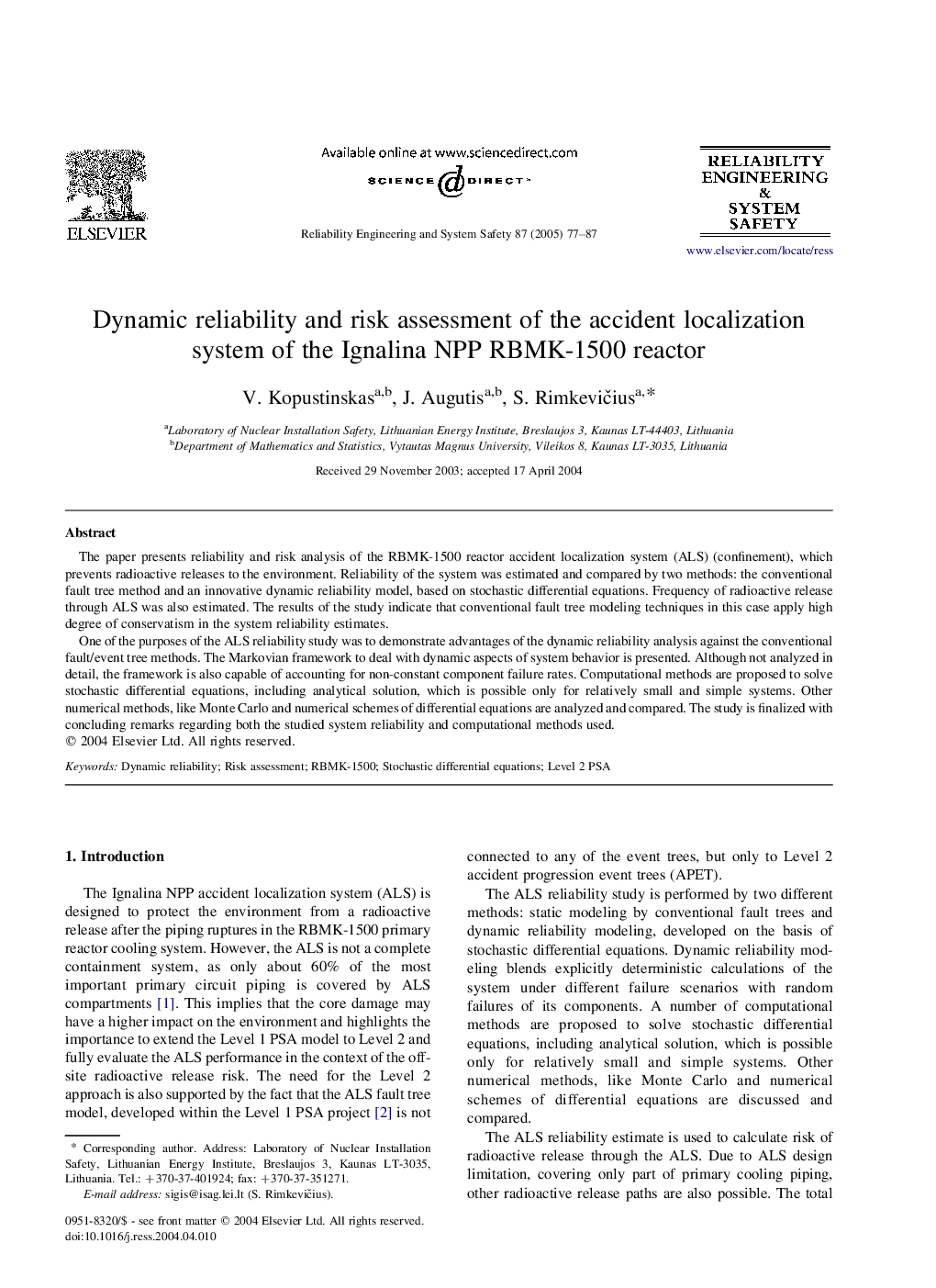| Article ID | Journal | Published Year | Pages | File Type |
|---|---|---|---|---|
| 10420733 | Reliability Engineering & System Safety | 2005 | 11 Pages |
Abstract
One of the purposes of the ALS reliability study was to demonstrate advantages of the dynamic reliability analysis against the conventional fault/event tree methods. The Markovian framework to deal with dynamic aspects of system behavior is presented. Although not analyzed in detail, the framework is also capable of accounting for non-constant component failure rates. Computational methods are proposed to solve stochastic differential equations, including analytical solution, which is possible only for relatively small and simple systems. Other numerical methods, like Monte Carlo and numerical schemes of differential equations are analyzed and compared. The study is finalized with concluding remarks regarding both the studied system reliability and computational methods used.
Related Topics
Physical Sciences and Engineering
Engineering
Mechanical Engineering
Authors
V. Kopustinskas, J. Augutis, S. RimkeviÄius,
